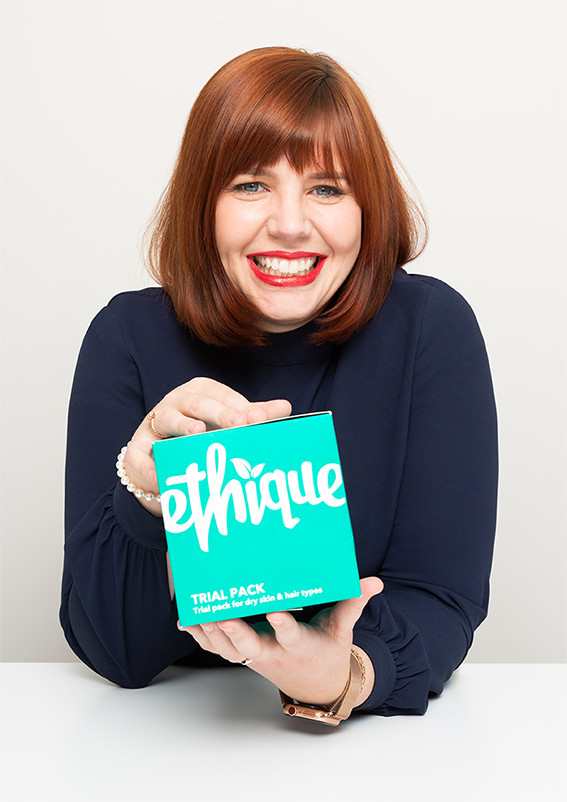Solid bar toiletries to replace plastic
Ethique is helping New Zealanders – and many others across the world – rid their bathrooms of single use plastic bottles one wash at a time.
This Christchurch-based company is on a mission to replace as many such bottles as it can with solid bars of shampoo, body wash and other toiletries products packaged in cardboard. All you need is water from the tap to lather up something as nice or nicer than whatever plastic-contained liquid you might have been using before.
For Ethique, progress in its mission can be measured in bottles not sent to landfill (and perhaps ultimately, the ocean) – 6.5 million since the business was launched in 2012. “We’re aiming for 50 million by 2025 … all part of a revolution in how people think about and use plastics in the bathroom and in other areas of life as well,” says Brianne West, Ethique founder and chief executive. “I am pushing for fast business growth because the more people convert to our products and similar ones, the better for everyone.”
The products – 52 now and growing – are made from essential oils (mainly coconut) and other fresh ingredients are all sustainably-sourced, organic, vegan and biodegradable. And of the course, the cardboard is compostable.
Ethique all started when Brianne, a biochemist by training, got thinking in the shower. “I dropped my shampoo bottle on the floor and, as usual, about half of it spilled everywhere and I thought, ‘this is madness’. Why put water in shampoo when there’s already water in your shower? Why contribute to the devastating effects of plastic bottles when you don’t have to?”
Brianne started formulating her own solid shampoos. That research and development continues today at the company’s Wigram head office and along the way, Ethique has earned carbon neutral and B-Corp accreditations. With its simple #giveupthebottle marketing message, this must be one of New Zealand’s most eco-friendly consumer brands!
There is certainly no ‘hard sell’ required. Indeed, Brianne says, “most retailers come to us … they have heard of our products and know there’s a huge demand out there for something like this”. Ethique’s progress so far can also be measured in 200%-plus annual sales growth, turnover above $11 million during 2018-19 and extraordinary export success with 85% of sales now occurring overseas mainly in the US and UK. In America the brand has been swept up by big and demanding retailers Amazon and Target – thanks to the capability of Ethique’s distributor in that market and to its globally-acceptable packaging and barcoding. The company joined GS1 in 2015 and, says Brianne, “Amazon have signalled that they’re very pleased with our labelling, product numbering and barcodes”.
At home, the Ethique range was adopted early by Countdown and Farmers, both retailers recognising the power of Ethique’s “give up the bottle” message. “While we are growing rapidly overseas, New Zealand is a fantastic market because people here tend to be more environmentally aware and they are looking for alternatives to plastic,” Brianne says.
Manufacturing is all in New Zealand, at four contracted plants. So too are the company’s 13 direct employees and the 352 shareholders who have contributed $2.8 million in start-up capital (including some equity crowd funding). Brianne says Ethique’s journey so far hasn’t all been easy: “We have very unique products and they are still largely hand-made …we have great partners manufacturing thousands of bars daily but it took 18 months of really hard work to get our production systems working."
New Zealanders currently toss around 686 million plastic bottles and containers into landfills annually, according to the WasteMINZ study released in January. Based on monitoring of the kerbside rubbish and recycling bins of 867 Kiwi households over four months, the study’s findings show: Households put a total of 1.76 billion plastic bottles and containers out for disposal or recycling each year and 39% of this goes to landfill despite much of it being fully recyclable.
The study was funded by the Ministry for the Environment’s Waste Minimisation Fund. See: www.wasteminz.org.nz

